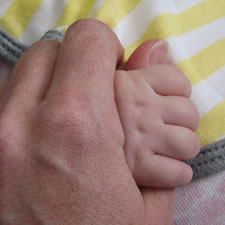 The convocation ceremony over, we were all gathered around outside taking photos and offering congratulations. The question on everyone’s mind was, “What are you going to do next?”
The convocation ceremony over, we were all gathered around outside taking photos and offering congratulations. The question on everyone’s mind was, “What are you going to do next?”
Truthfully, that question had started long before I graduated, with most people assuming that a graduate degree in education means you are going to be a principal (I’m not that crazy, and that requires a specific graduate degree, one in educational leadership, not just any old graduate degree in education).
Before I graduated I had a few different answers I would give depending on who was asking, or if they asked what I COULD do with my degree, not what I WOULD do with it.
With my degree I’m firmly in the realm of academia. It’s a theoretical degree not a practical one. Which means I’m prepared to teach college courses about learning theory, motivation, and child development and do research on the same. And I’d really enjoy teaching that. I did do that while getting my degree. It was a lot of fun.
Standing there at graduation though it occurred to me that nobody ever asked Plato, Socrates, or Aristotle what they were going to do with their degrees. Nobody asked Galileo what he was going to do after he finished studying.
Those men were scholars. They were men of means who had the financial wherewithal to devote themselves to learning for learning’s sake. Nobody ever would have thought to ask them what the point of their learning was, or even tell them that their plans for their knowledge were a waste (Yes, someone told me that. Yes, I wondered about his intelligence).
My plans for my degree have been to be a scholar – to devote myself to learning for learning’s sake. And I’m blessed to be able to do just that! I spend my day observing a small case study of all the learning and child development theories I’ve spent over a decade studying (ie, I spend the day playing with my daughter).
Someone told me having children wasn’t a science experiment when I commented I was super curious to see how our genes merged. I came back immediately with of course they aren’t a science experiment, they’re a social experiment! I have to see if all these theories actually work.
I am not a stay-at-home-mom. In part because moms never just stay home and in part because I think it makes a stupid acronym – SAHM. You can’t even say it as a word. And it doesn’t even come close to encompassing what I believe about my identity (I studied identity theories as well as part of my degree).
 I’m a Scholarly Wife and Mother, a SWAM. That’s a word. And it more accurately represents who and what I am.
I’m a Scholarly Wife and Mother, a SWAM. That’s a word. And it more accurately represents who and what I am.
I’m a scholar (unemployed learner). I even list that as my occupation on LinkedIn. I’m learning, constantly. I just finished a book, The Philosophical Baby , about the latest research in my field and found it absolutely fascinating (my review).
, about the latest research in my field and found it absolutely fascinating (my review).
I’m a wife. First and foremost. My relationship with my husband comes first.
And I am a mother. I’m a “very smart mommy,” which is what I’d tell people I wanted to do with my graduate degree if I thought they really wanted to know the truth.
Unfortunately, I think this means I’ve biased my case study. I remind my child we’re forming a secure attachment when I play patty cake with her. Brett says she’s waiting for references on that.
~ ~ ~ ~ ~
Edit: Brett found this article, O, Alma Mater, about this exact subject. I particularly liked these quotes, “perhaps the most meaningful way in which stay-at-home moms use their elite degrees is by raising their children to be well-educated, confident leaders of the next generation,” and “when a highly educated woman is home with her children day in and day out, she weaves the riches of her education into their lives in continuous, subtle, living ways. This is a priceless preparation for a lifetime of learning. This gift is the transmission of culture.”


 The convocation ceremony over, we were all gathered around outside taking photos and offering congratulations. The question on everyone’s mind was, “What are you going to do next?”
The convocation ceremony over, we were all gathered around outside taking photos and offering congratulations. The question on everyone’s mind was, “What are you going to do next?” I’m a Scholarly Wife and Mother, a SWAM. That’s a word. And it more accurately represents who and what I am.
I’m a Scholarly Wife and Mother, a SWAM. That’s a word. And it more accurately represents who and what I am. I am an educator and PhD. I quilt, belly dance, run, read, and try to grow things. I am a Mormon. I am infertile. I am a daughter, sister, aunt, grand-daughter, friend, wife, and mom.
I am an educator and PhD. I quilt, belly dance, run, read, and try to grow things. I am a Mormon. I am infertile. I am a daughter, sister, aunt, grand-daughter, friend, wife, and mom.













